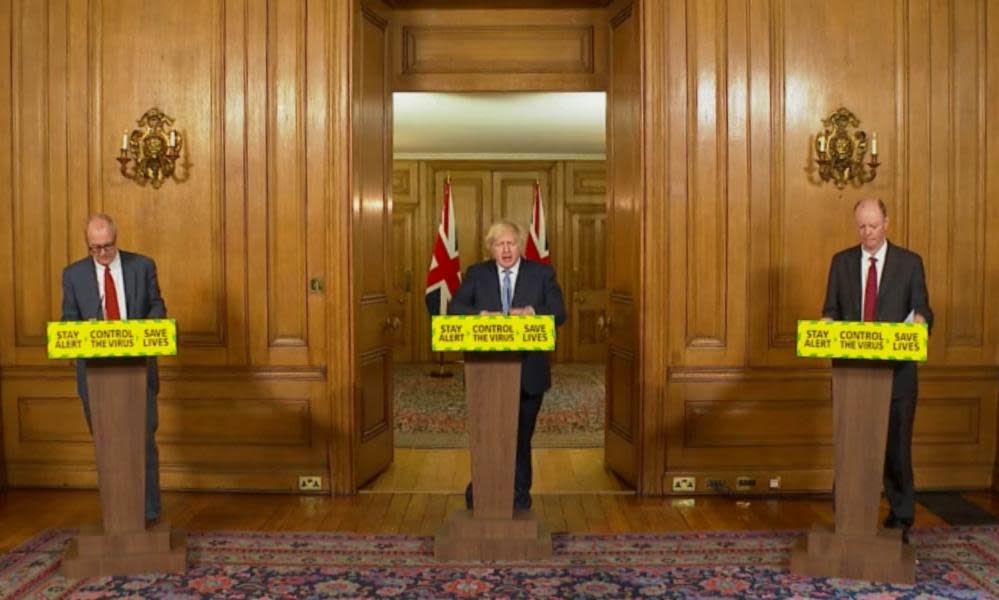No 10 is changing the way it does politics – and it's a major risk

Wanted: experienced media professional, preferably female. Must be willing to front up contentious decisions on a daily basis and should be impervious to relentless questioning. Television experience essential, salary to be determined.
It will be one of the stranger job advertisements a government has ever issued. But it’s happening. In October, the way the press and the public get their information from the people who run the country is changing. A new political spokesperson will conduct an afternoon daily briefing from No 9 Downing Street.
That change is entirely without precedent in this country. So does it matter?
Well, yes. At the most basic level, televised press briefings significantly alter the way the government will look and feel to the public. Whoever No 10 chooses immediately becomes one of, if not the, most visible members of the administration. The new face of Boris Johnson’s government – that’s what they’ll be – can expect significantly more media exposure than any of the cabinet.
Things will be different for the lobby – that is, the newspaper and TV reporters who cover Westminster politics – too. Before Covid-19 hit, the prime minister’s official spokesman, a civil servant called James Slack (he’s brilliant, by the way, and has a team of equally brilliant press officers) conducted twice-daily lobby briefings. Off camera, but on the record, the hacks could ask whatever they liked – but the reporting was only really about the answers. Now there will be an afternoon audience of people ready to decide if the journalists are trying to get the information they want.
I hope the new briefings don’t inadvertently lead to the death of the irreverent question. As the last prime minister’s spokesman, I remember the briefing where I was asked, “Paul, does the PM think it’s coming home?”, given England’s progress in the last World Cup. Or, on the day we launched a new childhood obesity plan, “Has Theresa May ever even had a McDonald’s?” (from memory – yes, thanks to one in her constituency she’d gone to officially open). Sometimes light-heartedness has a place. Sometimes it gets better answers.
No 10’s logic is simple. The daily Covid-19 press conferences helped shape the news agenda at the time of day most people are paying attention. Downing Street reckons that around 10 million people regularly saw content from them on television – and for all politicians, the opportunity to communicate directly with the public is seductive. There’s also something to be said for governments being more open with, and thus accountable to, the electorate they serve – so the “transparency argument” is one you’ll hear a lot.
The single biggest risk is also obvious. Press briefings – like newspapers – work best when the people involved have something to say. Inevitably, there will be days when No 10 doesn’t have a big announcement, and some of them will coincide with moments of real political pressure. While there’s a certain skill in saying little that makes news during a bad week (under the last prime minister we described those weeks as “sporty” or, when people started resigning, “choppy”), it definitely won’t look tremendous on television.
That is where format will be crucial. At the moment, behind closed doors, there’s nothing to stop the lobby asking the same question 100 times in their briefings (there’s usually an inverse relationship between how many times a question gets asked and how much they like the answer). Artfully dodging a question once is one thing – but refusing to answer the same question 10 times is another. Whether the new system operates more like a press conference – one outlet, one question – or the current free-for-all, will affect the public’s impressions a lot.
Another practical effect – to be honest, you could argue this could be either good or bad – is the centralisation of accountability. Ministers have to front up the decisions they are responsible for, but now there will be a way to get a reaction from No 10 that’s ready-made for television. It will mean more issues parked at Downing Street’s door, I suspect. And some stories that don’t amount to much but were pored over in briefings – we’d talk about “stuff that didn’t get out of the room” – will now, by definition, get out of it.
Finally, this move continues to formalise the manner in which the government briefs the press. Bernard Ingham, Margaret Thatcher’s press secretary, used to invite newspaper correspondents into his office, where they’d perch on the furniture to be given information on background. In 1997, Tony Blair’s government put the lobby briefing on the record for the first time. This is the next chapter in that story.
The televised briefing is a gamble previous administrations have resisted. Now – from our living rooms – we’re all about to see if it pays off.
• Paul Harrison served as Downing Street press secretary under Theresa May and is senior counsel at Lexington Communications


